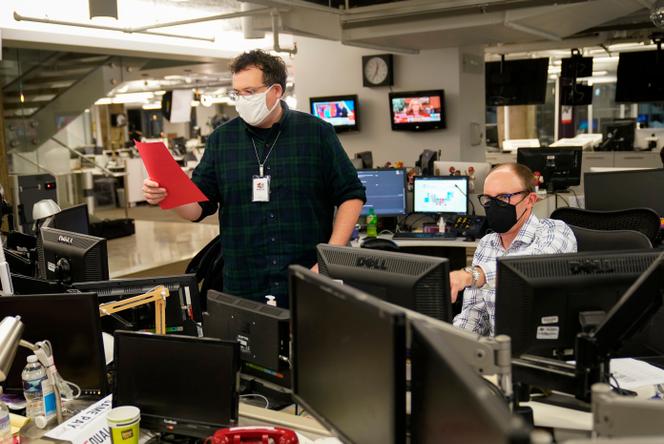


"Joe Biden wins Pennsylvania." These four words, published by the Associated Press (AP) at 11:25 am (5:25 pm Paris time) on November 7, 2020, crossed oceans and language barriers in a matter of seconds. At 5:33 pm, Le Monde wrote: "The Democrat wins in Pennsylvania and obtains 20 additional electors, thereby securing a majority of the 270 electoral college votes." Like many media outlets, the paper quoted AP. Millions of telephones vibrated almost simultaneously, one part of America shouted its euphoria in the streets, another its despondency, and diplomatic reactions rained down.
In the United States, the election results proclaimed by the press are considered definitive. No national electoral commission announces the name of the winner on the day, as in France. Americans rely on the media to follow the vote count, sometimes for days on end, led by the Associated Press, the undisputed authority on the subject since the election of 1848.
Its responsibility remains unchanged: To monitor and centralize local vote counts, and to declare a winner only when counts are mathematically certain. Even if it means not announcing anything as long as the margin is too close in a state, as was the case during the extraordinary post-election duel in 2000 between George W. Bush and Al Gore, which AP refused to settle before a Supreme Court decision. The method, however, is a far cry from that of 1860, when Pony Express postal riders collected California's numbers and transmitted them by telegraph.
Behind the brief alerts that AP delivers throughout Election Day, and often beyond, stands the agency's entire staff of specialized journalists, statisticians, race callers (the experts responsible for declaring the winner in each state), pollsters and seasoned editors. All form the decision team. For them, "This isn't something that happens every four years in November, it's a full-time job," said David Scott, a vice president of the AP who is in charge of the team responsible for validating the results.
Tirelessly, they track the polls, the voting history in each state, their shifting electoral rules and postal ballots. Dress rehearsals are scheduled just a few weeks before the election. Wide lead or a tight race, AP teams prepare for every scenario. False voting data are generated to simulate D-Day conditions – with the word "TEST" prominently displayed. They record any slowness or problems encountered and make any necessary improvements. "The machine must be perfectly oiled," said Scott, "just like a sports team would practice for game day."
You have 47.82% of this article left to read. The rest is for subscribers only.
